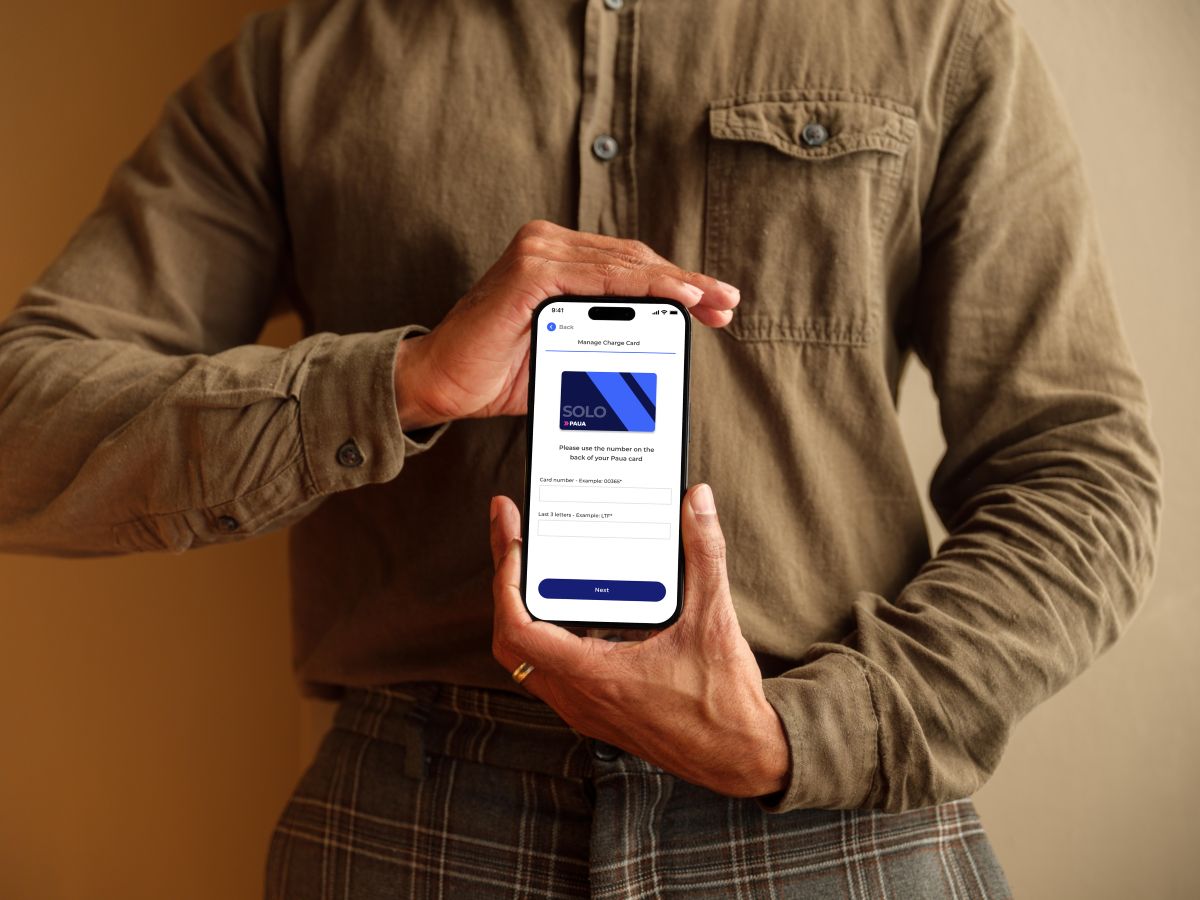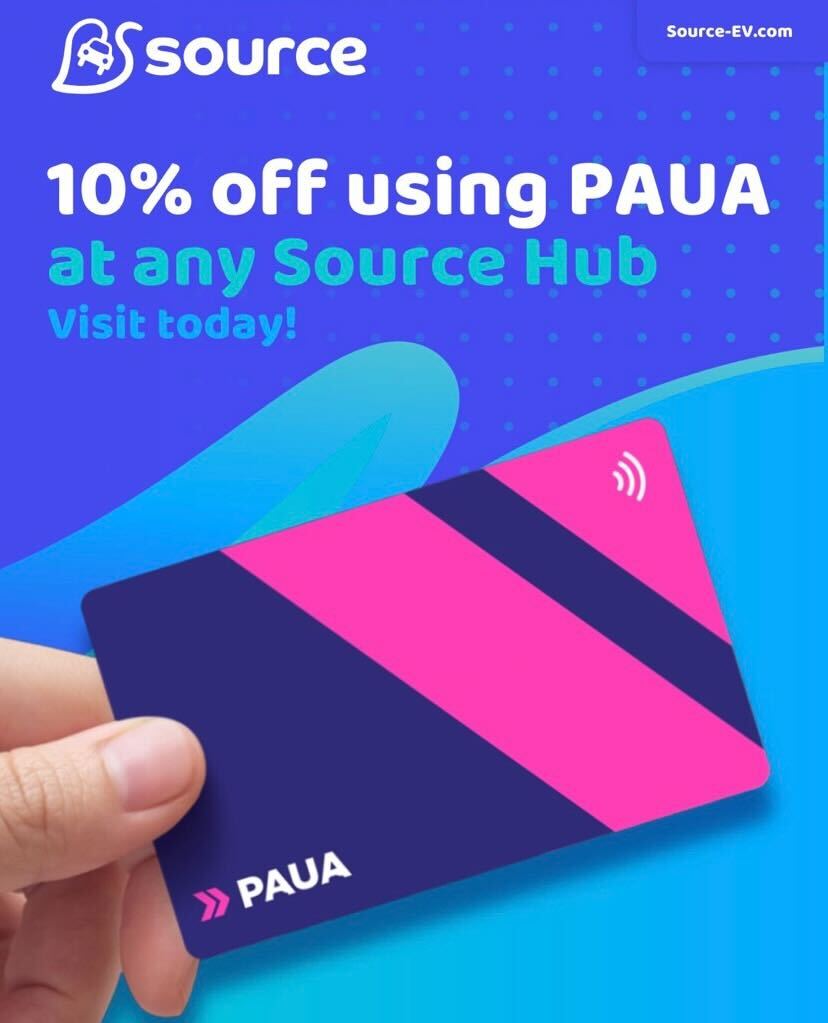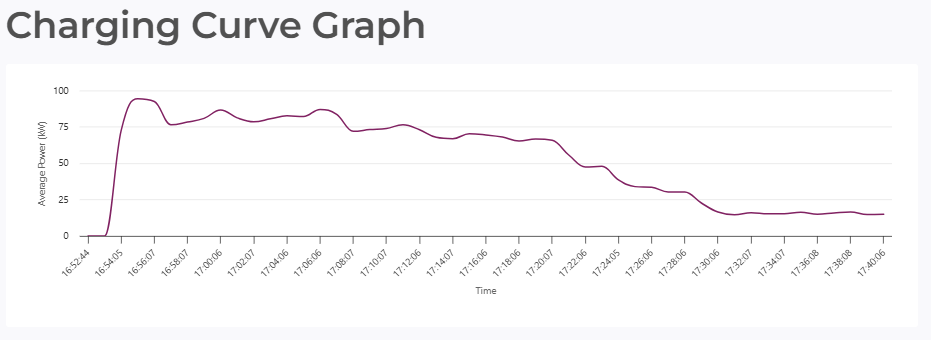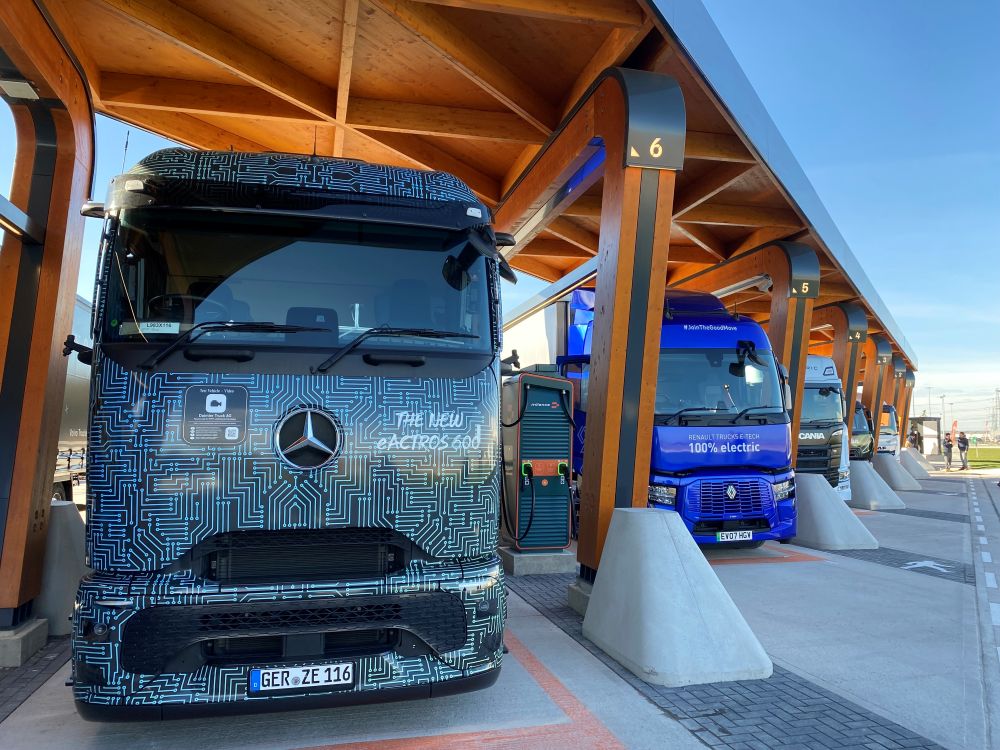TL;DR
EV salary sacrifice has empowered thousands to switch to electric cars - but not everyone can benefit equally. Employees without home chargers often face higher costs and limited access. Paua Solo solves this by adding tax-efficient public charging, creating a fair, inclusive, and compliant solution for every driver.
EV Salary Sacrifice charge cards: Making It Fair for Every Employee
Turning a great benefit into an inclusive one
Salary sacrifice has been one of the most successful employee benefits of the past five years. It’s helped thousands of staff switch to electric cars, save money, and cut emissions - all while employers strengthen their sustainability story.
- But beneath the success lies a quiet imbalance.
- Salary sacrifice works beautifully if you have a driveway and can charge at home.
- If you don’t, it can feel like the benefit was never designed for you.
That’s where Paua Solo, the Paua EV charge card for salary sacrifice shcemes, steps in - to make EV salary sacrifice fair, flexible, and accessible for every employee, not just the lucky ones with off-street parking.

1. The “driveway divide” inside your workforce
Let’s start with the data.
Around 44% of UK households have no off-street parking
That’s nearly half of all employees - people living in flats, terraced housing, or rental properties - who can’t install a home charger.
Even among homeowners, some can’t fit a wall box, face restrictions from landlords or freeholders, or simply don’t have the electrical capacity.
This creates a hidden divide between home-charger haves and have-nots:

in some cases that’s a tenfold difference in cost for the same electricity - and a clear equity problem inside an otherwise brilliant benefit.

2. Why fairness matters for employers
A salary sacrifice scheme should be a great equaliser, not a divider.
When certain employees feel excluded - often younger, urban, or lower-income staff - it undermines both engagement and ESG credibility.
From an employer’s perspective, the impact is threefold:
- Reduced participation: those without driveways simply opt out of the scheme.
- Reduced trust: perceived unfairness weakens enthusiasm for sustainability initiatives.
- Reduced ROI: fewer participants mean fewer vehicles, fewer savings, and fewer carbon reductions achieved.
The solution isn’t to abandon salary sacrifice. It’s to make it equitable.

3. Making fairness tangible with Paua Solo
Paua Solo adds public charging as a tax-efficient option inside salary sacrifice car schemes - ensuring every driver has equal access to affordable energy, wherever they live.
Here’s how it works:
- When an employee chooses their EV, they can also add a Paua charge card to their package.
- They select a fixed monthly allowance - typically £25, £50, £75 or £100
- That amount is deducted from their gross salary before tax and National Insurance.
- Paua then loads the allowance to their account, which works across 65,000+ UK charging connectors spanning 50+ networks
- Any unused balance rolls over; any excess use is simply billed to their personal debit card.
The outcome:
- Every employee gets access to affordable public charging.
- Costs are reduced by up to 62% (average ~42% savings) thanks to tax efficiency.
- The employer offers a fairer, greener benefit - with no added admin.

4. How Paua Solo levels the playing field
The genius of Paua Solo is that it bridges the cost gap between home charging and public charging through tax savings.
Imagine two employees, both driving identical electric cars under salary sacrifice:

With Paua Solo, Priya - who lives in a flat - can now enjoy almost the same running cost as Harry, who has a driveway.
That’s fairness made real.

5. Why this matters for your ESG goals
Fairness isn’t just a social issue - it’s part of modern governance.
Adding Paua Solo strengthens all three pillars of your ESG strategy:
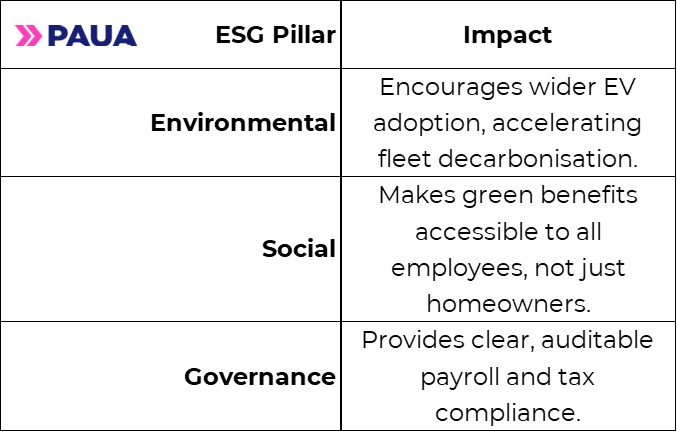
In other words: it’s sustainability with integrity.

6. Removing the “charging anxiety” barrier
Many employees want to go electric but worry about charging logistics - especially those without home chargers.
Paua Solo removes that anxiety with:
- One card, one app: no juggling dozens of network accounts.
- Nationwide coverage: more locations than petrol stations.
- Simple budgeting: fixed monthly cost, visible in the app.
- Automatic rollover: unused balance carries forward.
For employees, it feels effortless. For employers, it looks effortless.

7. Administrative simplicity for HR and payroll
Fairness shouldn’t come with extra paperwork. Paua Solo is built to integrate neatly into existing payroll and HR systems.
- The monthly charging allowance is deducted pre-tax, just like the car lease.
- Paua provides one consolidated invoice per employer or scheme provider.
- Reporting and VAT treatment are transparent.
No reimbursements, no manual claims, no compliance grey zones.
That’s why HR teams describe Paua Solo as “the only EV benefit that doesn’t add admin.”

8. The ripple effect: inclusion drives adoption
When employees see that their company’s EV benefit includes everyone, participation rises dramatically.
According to Paua’s internal modelling, enabling public charging within salary sacrifice schemes increases potential participation by up to 44%, unlocking substantial new uptake and emissions savings
That’s not just more fairness - that’s more impact.

9. The employer’s advantage
By adopting Paua Solo, employers can:
- Expand eligibility for EV benefits to their entire workforce.
- Demonstrate tangible social responsibility in benefits design.
- Simplify payroll and compliance through fixed pre-tax deductions.
- Reduce average fleet emissions faster by including previously excluded drivers.
And with Paua’s gross pay model, every deduction is HMRC-compliant - no risk, no retroactive adjustments, no surprises.

10. Why fair benefits build better cultures
When employers demonstrate fairness in benefits, it boosts trust across the workforce. Employees feel seen, valued, and treated equally.
That drives higher engagement scores, better retention, and stronger alignment with corporate values.
It also helps employers stand out in a competitive talent market where candidates are increasingly asking, “Does this company take sustainability seriously - and fairly?”

11. The final word: fair charging, fair future
The shift to electric vehicles is about progress - but progress only counts when everyone can take part.
By integrating Paua Solo into your salary sacrifice scheme, you give every employee - not just those with driveways - a fair chance to drive electric.
You deliver:
- Equal access.
- Lower costs.
- Simpler administration.
- Stronger ESG alignment.
Fairness isn’t just good ethics. It’s good business.
Paua Solo: the fair way to charge.
Paua Solo is the EV charge card solution for public charging in your salary sacrifice scheme. Contact Paua to learn how EV drivers can save up to 62% on public EV charging through salary sacrifice. Get cheaper, tax-efficient EV charging with Paua.
*This content is for general information only and does not constitute tax advice.
